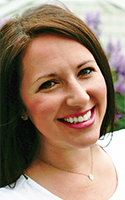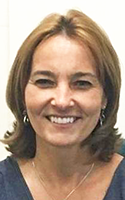Associated Press Stylebook changes language rules dealing with addicts. Health professionals say it’s a step to help de-stigmatize substance dependency
By Deborah Jeanne Sergeant

For many years, “person first” language has been the standard among media members and professionals in mental health, such as “person with disabilities” instead of “disabled person.” The Associated Press’ 2017 Stylebook, journalists’ go-to book for writing and language standardization, has extended person first language to addicts — make that “persons with addictions.” The exceptions include the names of organizations or quotations. While it may seem an inconsequential use of phrases, words are powerful and they can affect treatment.
Diane Oldenburg, senior public health educator at Oswego County Health Department, said that the change reflects a desire by professionals to de-stigmatize substance dependency in the hopes of promoting treatment. For someone who really needs treatment, learning about this site, https://www.addictiontreatmentrehab.co.uk/, will be a great option for them.
“In health care, we’ve always tried to be patient-centered, not illness or diagnosis-centered,” she said. “You try to be aware that we’re dealing with people, not diseases. The person does come first.
“People don’t want to be defined by their diagnosis.”
By reducing patients to a diagnosis, clinicians don’t view them as whole people with other aspects to their lives, Oldenburg said.
Lindsay Rowe, licensed clinical social worker at St. Joseph’s Hospital Health Center and in private practice in Syracuse, believes that attaching words such as “junkie,” “addict,” “druggie” and “dirty/clean” to those who struggle with substance abuse disorders unnecessarily shames them.
“I’ve always been trained to use person-first language because one of the big things is it de-stigmatizes some of these challenges like addiction,” Rowe said.

For some, the stigma could delay life-altering or even life-saving treatment. Others identify those terms both with addiction and with people who are unemployed, homeless and without an intact family structure. Yet some people who dependent on drugs can adequately keep other areas of their lives reasonably unaffected while they continue to risk health complications that include overdose.
Many Group Treatment programs begin with participants introducing themselves and calling themselves the very disparaging terms professionals denounce.
Rowe said that first admitting there’s a struggle represents the first step toward recovery; that’s why recovery groups emphasize naming the problem forthrightly. You can check out Red Door Life Articles to learn more about substance abuse recovery.
That change to person-first language represents one of the major shifts in treatment of substance abuse: moving from the behavioral model to the health model, according to Carolyn Grisko, clinical director of Beacon Center, an addiction treatment center with various locations in in Upstate, including Oneida and Cortland counties. She said that since professionals have only recently identified a biological element, it will take time to adjust to the new language.
“We encourage people to think they’re not defined by their addiction,” Grisko said. “Family members or significant others with Pregnant Addiction or alcoholism is easier with person-first language as they feel more comfortable. It’s more approachable and less harsh.” Individuals who developed substance dependence may seek treatment at a Drug Addiction Recovery Information Center.
She said that the change in language reflects the emergence of person-centered treatment models that focus on why the person became dependent on a substance. Treating each patient the same is not as effective as learning their backgrounds and how they became dependent. Check this link right here now for more Recovery Programs.
Grisko said that about 10 percent of the population deals with some sort of addiction, but far fewer seek professional help. She believes that person-first language makes it easier for them to obtain treatment from a residential rehab center.
“Everyone comes in with a different story,” Grisko said.
